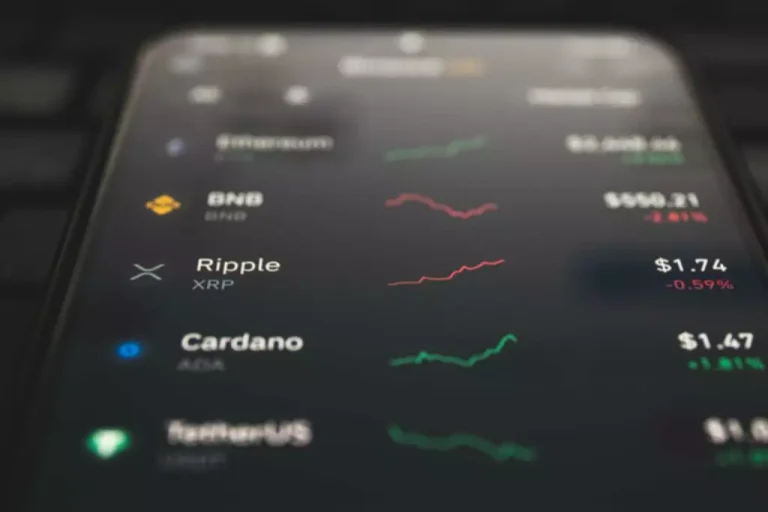Market makers provide liquidity and depth to markets and profit from the difference in the bid-ask spread. They may also make trades for their own accounts, which are known as principal trades. From the perspective of the average trader, the amount of liquidity is often expressed through changes in volatility. Changes in quotations on the illiquid market occur at a chaotic pace and are sometimes quite significant. An excellent example is the crypto market, a relatively new market that is less liquid than Forex or stock markets.
Many exchanges use market makers who compete to set the best bid or offer. This keeps bid-ask spreads liquid but also at a fair price for traders and investors. Market makers play an essential role in keeping financial markets fluid and efficient. They do this by standing ready to buy and sell assets at any time. They’re regulated entities, and they operate in a highly competitive market.

The exchange or broker may grant market makers special powers to maintain the trading volume. Wholesale market makers focus on high-volume pools and use order flow arrangements. They trade securities for both institutional clients and broker-dealers. These market makers create optimised bundle orders using high-frequency trading algorithms. In January of 2021, the buying and selling of “meme stocks” like GME and AMC were limited by the likes of Robinhood and TD Ameritrade. However, market makers aren’t without their share of critics – with many investors feeling as if market makers engage in market manipulation by moving prices with large sell and purchase orders.
These market players have such big stocks of assets (for example, small banks and private investors) that a price impulse is generated when they make transactions. They are required to provide liquidity in the market so that the trades can be executed at an optimal transaction cost, and the markets can function seamlessly. If market makers are not available, then the number of transactions can be affected, and overall investing can get reduced. It is similar to having a network of retail outlets for the products to be sold so that the buyers and sellers can reach out to their nearest shop to acquire goods and services. Stocks, securities, and other assets need markets to move from sellers to buyers.
- Tax treatment depends on your individual circumstances and may be subject to future change.
- Institutional market makers play a primary role in maintaining liquidity in the markets due to the enormous amount of funds they have at their disposal.
- Specific companies and funds are mentioned in this article for educational purposes only and not as an endorsement.
- When a market maker buys a stock, it will sell it for a higher price – and when it sells a stock, it buys it at a lower price.
- Since automated systems are more efficient than human beings in detecting & responding to risk-oriented events, it is observed that automated systems help market makers considerably.
- Due to these and other advantages, every day more and more traders and investors begin to explore the basis of trading, whether it is the cryptocurrency market or Forex.
As liquidity providers, market makers can quote or improve these prices. The most common example of a market maker is a brokerage firm that provides purchase and sale-related solutions for real estate investors. It plays a huge part in maintaining liquidity in the real estate market. Market makers are essential to any financial market and subsequently, they work as per the instructions from securities market regulators. They provide quotes for stocks and process buy and sell orders from investors.
Crypto VC: Token investing and the next bull run with Digital Wave … – Cointelegraph
Crypto VC: Token investing and the next bull run with Digital Wave ….
Posted: Wed, 04 Oct 2023 13:52:30 GMT [source]
Market makers are high-volume traders that „make a market“ for securities by always standing at the ready to buy or sell. They profit on the bid-ask spread and they benefit the market by adding liquidity. If their orders stopped, it’d be harder for traders to get in and out of their trading positions. They run the bid-ask spread and profit from the slight differences in the transaction.
Liquidity plays a crucial role in financial markets, and market makers ensure that the music keeps playing by providing liquidity. Advances in market making have a significant impact on the entire financial industry. Over the past two decades, we have slowly moved toward a more automated financial system. As part of that transition, traditional market makers have been replaced by computers that use sophisticated algorithms and make decisions in fractions of a second. Market makers of the first level are considered the largest commercial banks, which are united in a group called Tier 1.
It means that they want to buy 100 shares for the price of $5 while simultaneously offering to sell 200 shares of the same security for the price of $5.50. The offer to buy is known as the bid, while the latter offer to sell is the ask. According to the NYSE, a lead market maker is an „ETP holder or firm that has registered“ to trade securities with the exchange.
But once you consider that Lloyds shares trade at colossal volumes, then the lucrative business of market making becomes apparent. I have always thought of myself as a writer, but I began my career as a data operator with a large fintech firm. This position proved invaluable for learning how banks and other financial institutions operate. Daily correspondence with banking experts gave me insight into the systems and policies that power the economy.

Market makers working on large block orders for mutual funds are known as Institutional market makers. They maintain capital inventory for pension crypto market making funds, insurance, and other investment assets. A market maker can be an individual or an entity formed by a group of market makers.
They hold an inventory of securities or even physical currencies for trade. In an effort to combat the risks of trading, market makers are given the benefit of a two-way quote. Consequently, they offer to buy and sell prices together in a quote. The profit from a difference in the prices is a reward they earn for taking the risk. Exchanges like the NYSE and NASDAQ serve to provide a marketplace where buyers and sellers can meet. That 2p difference between Lloyds’ bid and ask prices, then, could see market makers generate a profit of £3,160,000 if they processed every order.
Although the terms”market maker” and “specialist” are sometimes used interchangeably, this is an error. Although they fulfill similar roles, there are key differences between the two. In return for that benefit, anyone who wants to take care of a transaction has to pay a price.
The market maker would “work” the order by shorting stock in the open market and close out the trade by purchasing the institutional order. Market makers are allowed to make agency trades and principle trades so if they short an additional 50,000 shares knowing they can drive down the price to cover, it’s doable and not illegal. Since market makers are sometimes involved as both brokers and dealers, this creates a conflict of interest because, as brokers, they are supposed to provide clients with the best execution.


